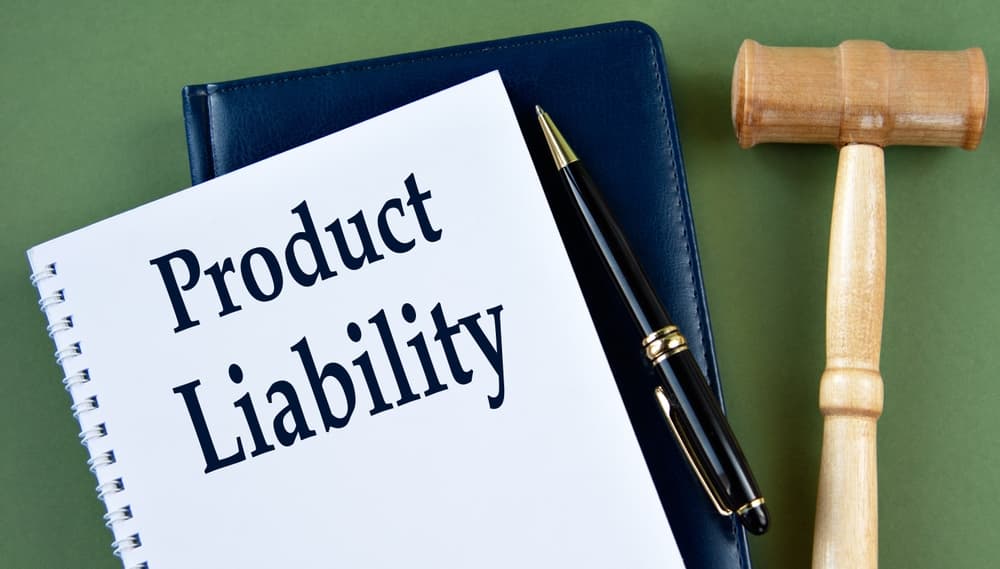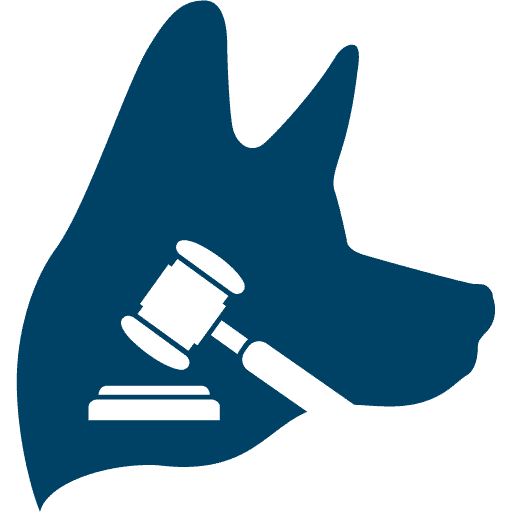Home » Product Liability Lawyers » Tennessee Product Liability Lawyer
You trust the products you buy. You use them every day, assuming they’ll do their job safely. But sometimes, that trust is broken, and a product meant to help ends up causing harm.
Companies have a responsibility to make and sell items that don’t put consumers at unreasonable risk. When they fail, and you get hurt because of a defective product in Tennessee, you might have a right to seek compensation.
If a defective product injured you, take the first step. Call (888) 778-1198; TopDog Law can connect you with a vetted Tennessee product liability lawyer in our network who handles these types of cases.


You bought something, used it like you were supposed to, and still ended up injured. It feels wrong, and frankly, it often is. Product liability law is the area that deals with this exact situation.
It’s about holding manufacturers, distributors, or sellers accountable when their defective products cause injury or damage. The core idea is simple: products placed into the stream of commerce should be reasonably safe for their intended and foreseeable uses.
Tennessee has specific laws covering this, primarily found in the Tennessee Products Liability Act of 1978 (Tennessee Code Annotated Title 29, Chapter 28). This act lays out the framework for who can be sued and what needs to be proven.

Just getting hurt while using a product doesn’t automatically mean you have a case. The injury needs to stem from a specific kind of flaw, legally recognized as a defect. Generally, these fall into three buckets:
This isn’t about a single faulty item; it’s about a flaw baked into the product’s very blueprint. Even if manufactured perfectly according to plan, the product is inherently dangerous due to its design.
Think of an SUV designed in a way that makes it excessively prone to rolling over during normal driving conditions. Tennessee law (TCA § 29-28-102(2)) defines a “defective condition” partly based on this concept. The entire product line might be problematic.
Here, the design might be perfectly safe, but something went wrong during the making of the specific item that injured you. It’s a deviation from the intended design that happened on the factory floor.
Imagine a batch of tires where the rubber wasn’t cured properly, making them likely to blow out, or a single ladder with a cracked rung missed by quality control. This type of defect makes the product unsafe compared to identical items manufactured correctly (see TCA § 29-28-102(4)).
Some products have inherent risks that can’t be designed away. In these cases, the defect lies in the information—or lack thereof—provided to the user. This means inadequate instructions or failing to warn about non-obvious dangers associated with the product’s use.
Consider a powerful cleaning chemical sold without clear warnings about necessary ventilation, or a prescription drug lacking adequate information about serious potential side effects. Tennessee law addresses this under concepts like “unreasonably dangerous” (TCA § 29-28-102(8)) and requires warnings for non-apparent dangers (TCA § 29-28-105(d)).

Alright, you’ve identified a potential defect. The next question is, who do you pursue for compensation? It’s not always straightforward, as a product usually passes through several hands before reaching you.
The chain of distribution can include:
Generally, under Tennessee’s Product Liability Act (TCA § 29-28-106), the primary target is the manufacturer. A seller (like a retailer) usually isn’t liable unless they exercised substantial control over the product’s design or manufacture, knew about the defect, or if the manufacturer cannot be brought to court (e.g., they are bankrupt or outside the court’s jurisdiction).
A lawyer can help determine the potentially liable parties based on the specifics of your situation.
This part is serious: don’t wait around assuming you have all the time in the world. Tennessee law puts strict deadlines on filing lawsuits, and missing them means losing your right to seek compensation, no matter how strong your case is.
For personal injuries caused by defective products, the Statute of Limitations is generally just one year from the date the injury occurred or was discovered (or reasonably should have been discovered), as outlined in TCA § 28-3-104.
There’s also something called the Statute of Repose (TCA § 29-28-103). This sets an absolute deadline, typically ten years from the date the product was first purchased for use or consumption, or one year after the product’s anticipated life expires, whichever is shorter. There are very few exceptions to this rule.
The takeaway? Time is not on your side. Contacting a lawyer quickly is paramount.
If you successfully prove your product liability claim, the goal is to recover compensation, known as damages, for the losses you’ve endured. This isn’t a lottery win; it’s about making you whole again, as much as money can.
Compensatory damages typically fall into two categories:
In rare situations involving particularly bad conduct by the defendant (like intentionally hiding a known danger), punitive damages might be awarded. These are meant to punish the wrongdoer and deter similar behavior, but they require proving intentional, fraudulent, malicious, or reckless actions (TCA § 29-39-104) and are also subject to caps.


You’re dealing with an injury and the realization that a product might be to blame. Once the immediate emergency is over and you’re safe, taking certain steps can help protect your legal rights down the road.
Find out where you stand. Call TopDog Law today at (888) 778-1198. Our network includes vetted Tennessee personal injury lawyers ready to listen to your story and discuss your potential product liability case.

3385 Airways Blvd Unit 301F,
Memphis, TN 38116
TopDog Law is known for its relentless pursuit of justice. Our experienced team fights tirelessly to secure maximum compensation for our clients, ensuring every case is handled with dedication and determination.
We understand the emotional and financial toll that personal injuries can take. That’s why we prioritize open, compassionate communication and provide tailored support throughout the legal process. With free consultations and a contingency fee model, you won’t pay a dime unless we win your case.
With TopDog Law on your side, you can rest assured that you have a tenacious, experienced team fighting to get you the compensation you deserve, no matter where you’re located.

TopDog Law is a national marketing network for law firms, including Helm Law Group, LLC, which license the TopDog Law name and separately operate in states where they are each licensed. James Helm is licensed to practice in Arizona and Pennsylvania. Helm Law Group, LLC operates in Arizona.
3225 Cumberland Blvd, Ste 100
Atlanta, GA 30339
111 Presidential Blvd., Suite 251
Bala Cynwyd, PA 19004
1 South St, Suite 2125A
Baltimore, MD 21202
950 22nd Street N. Suite 600
Birmingham, AL 35203
361 Newbury Street, 3rd Floor
Suite 310
Boston, MA 02115
305 E 204th St.
Bronx, NY 10467
215 E 5th St, Unit 1 Suite 400-3
Brooklyn, NY 11218
1207 Delaware Ave, Suite 012
Buffalo, NY 14209
101 N Tryon St. Suite C
Charlotte, NC 28246
6343 S Western Ave.
Chicago, IL 60636
2217 E 9th St, Suite A
Cleveland, OH 44115
66 S Logan St Suite B
Denver, CO 80209
645 Griswold Street, Suite 1309
Detroit, MI 48226
863 Massachusetts Ave 2nd floor Suite B
Indianapolis, IN 46204
317 E Capitol St suite 200C
Jackson, MS 39201
1701 Troost Ave suite 202b
Kansas City, MO 64108
#8 Shackleford Plaza, Suite 304
Little Rock, AR 72211
8124 W 3rd St, Suite 201
Los Angeles, CA 90048
3385 Airways Blvd Unit 301F
Memphis, TN 38116
1433 N Water St Suite 400D
Milwaukee, WI 53202
600 Mount Prospect Avenue, Suite A
Newark, NJ 17104
66 Franklin St, Suite 300C
Oakland, CA 94607
5627 Germantown Ave Suite 420
Philadelphia, PA 19144
2700 N Central Ave Suite 320B
Phoenix, AZ 85004
6425 Living Place, Suite 200
Pttsburgh, PA 15206
920 West Sproul Road, Suite 201
Springfield, PA 19064
4625 Lindell Blvd Suite 200 & 300C
St. Louis, MO 63108
1150 Connecticut Ave NW, Suite 802B
Washington, DC 20036
6832 W North Ave Suite 2A
Chicago, IL 60707
3509 Haverford Ave, Suite 102
Philadelphia, PA 19104
Copyright 2025 All Rights Reserved © TopDog Technologies, Inc. and Helm Law Group, LLC
403 Olde House Lane Media, PA 19063
